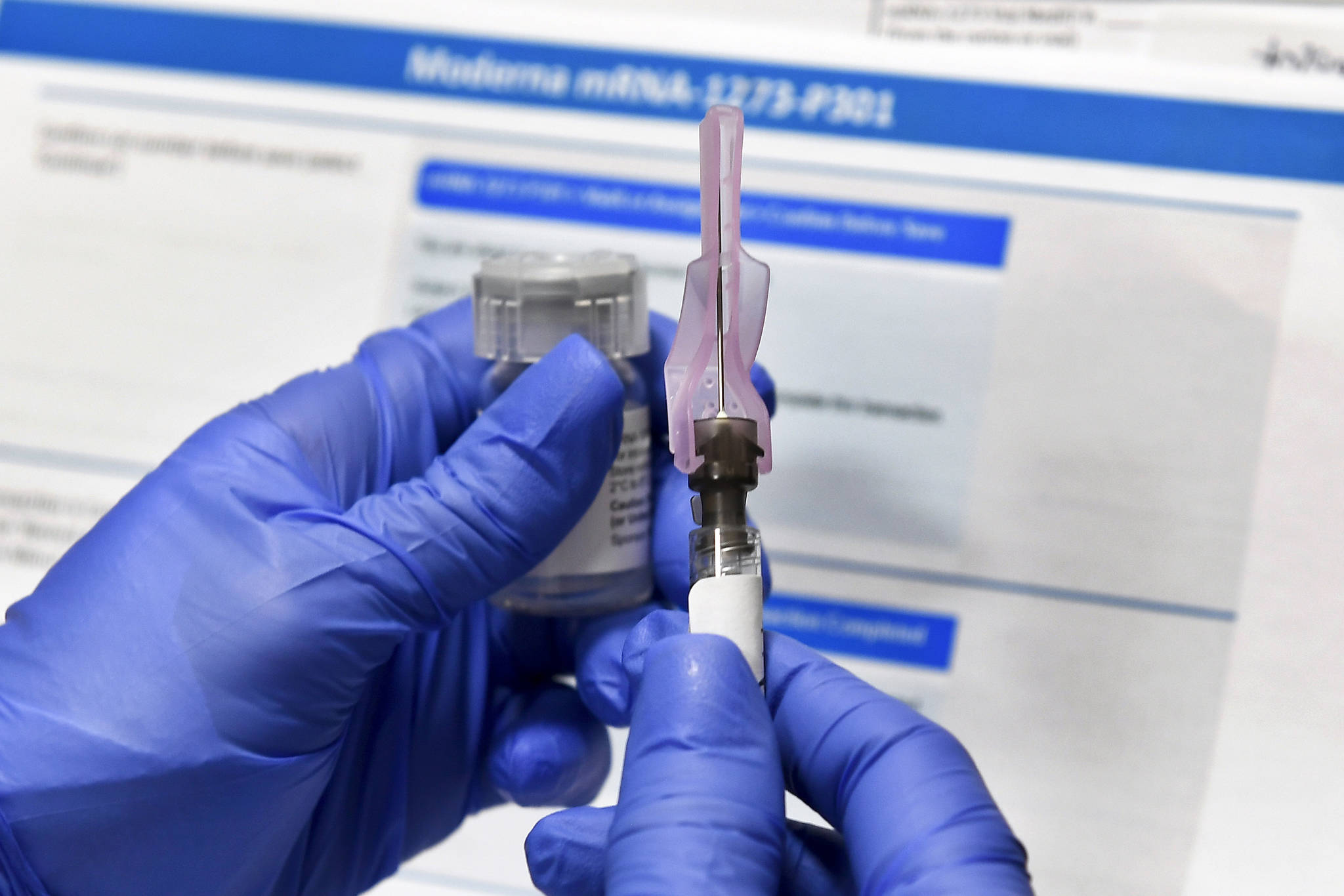The first COVID-19 vaccine doses could arrive in Alaska as early as next week, the state’s health experts said during a media briefing on Monday.
Two different companies, Pfizer and Moderna, have submitted vaccines to the U.S. Food and Drug Administration (FDA) more than one year after the first cases of COVID-19 were reported. Both have efficacy rates of over 90%.
Pfizer and Moderna have applied for an Emergency Use Authorization (EUA) for their COVID-19 vaccines. EUAs allow the FDA to authorize products during a declared state of emergency under an expedited review process.
The FDA is expected to consider Pfizer’s EUA application on Dec. 10 and Moderna’s on Dec. 17. Vaccines granted EUA cannot be mandated by government entities or by businesses.
From the federal government, Alaska is expecting to receive 35,100 initial doses of Pfizer’s vaccine and 17,900 initial doses of Moderna’s vaccine. Zink said that while those numbers are higher than expected, they are not enough to vaccinate everyone included in Phase 1A.
Last week, the Centers for Disease Control and Prevention’s Advisory Committee on Immunization Practice published their recommendations on who should receive the first doses of the COVID-19 vaccine, which will be extremely limited. Health care workers and long-term care facility residents were recommended to be included in Phase 1A.
On Dec. 3, Alaska’s COVID-19 Vaccine Allocation Committee met to review the recommendations and unanimously determined a portion of the groups to be included in 1A. They include hospital-based frontline health care workers at highest risk for infection, long-term care facility residents and staff and EMS/fire personnel providing emergency services, among others.
Both Pfizer and Moderna’s vaccine require two doses to be effective. The amount of time between when someone receives the first dose and the second dose depends on which company they receive their initial vaccine from. Moderna’s two doses must be administered 28 days apart. Pfizer’s two doses must be administered 21 days apart.
Members of the HUB team emphasized how crucial it will be for people to follow up and get their second dose.
“It’s really important that you get the second dose — it looks like a lot of the immunity comes from that second dose,” Alaska’s Chief Medical Officer Dr. Anne Zink said Monday. “So when you get your first one, put it in your schedule to know that second one.”
As of Dec. 4, 265 of the state’s health care providers were fully enrolled in the COVID-19 Vaccine Program, meaning they will be eligible to receive a portion of the first shipment of vaccines to the state.
Clinics, pharmacies and hospitals are encouraged to enroll in the program to be included in future vaccine distribution planning. Information on how to enroll can be found on DHSS’ website.
The vaccine is being provided for free, meaning people who receive it will not be required to pay for the vaccine, however, the entity that actually administers it may bill a patient’s insurance for an administrative fee.
State health officials expressed their general excitement about the vaccine’s arrival, which Dr. Zink called a “game-changer.”
“This is the beginning of the end and we are just so excited to be able to bring this vaccine to Alaska and just to be working to really make this a reality,” Tessa Walker Linderman, Department of Health and Social Services lead for the Alaska COVID-19 Vaccination Task Force, said Monday.
Reach reporter Ashlyn O’Hara at ashlyn.ohara@peninsulaclarion.com.

